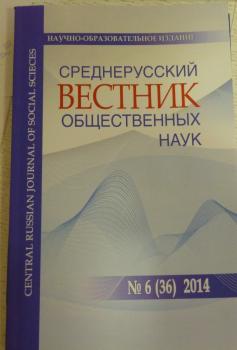The author examines tolerant and intolerant models of forming the image of the Other, without which political identification is impossible. Within the intolerant model the image of the Other is transformed into the image of the Other and then, perhaps, the Enemy. One of the most common techniques of forming the image of the Stranger in politics is dehumanization, a set of ideas and actions, allowing to introduce political opponents as actors, deprived of human principles, and, consequently, to justify almost any action against them. The role of technology of dehumanization is determined by the objectives of its usage. The author proposes the typology of dehumanization technologies, highlighting, along with animalistic and mechanistic technology, exploitation of images of monsters, puppets and others. Using the collection of political advertizing as an empirical source in presidential campaign in Russia in 1996, the author examines the causes and consequences of the use of dehumanizing technology in political competition.
political technologies, dehumanization, image of the Other / Stranger, political identity
1. Avchenko V. Effektivnost´ politicheskikh manipulyatsiy na prakticheskikh primerakh (Rossiya 1990-kh). - Vladivostok, 2002. - URL: http://psyfactor.org/polman3.htm (data obrashcheniya: 10.10.2015).
2. Achkasov V.A. Politika identichnosti mul´tietnichnykh gosudarstv v kontekste resheniya problemy bezopasnosti. - SPb: Izd-vo SPbGU, 2012. - 236 s.
3. Zinov´ev A.P., Morozov S.A., Morozova E.V. Politicheskiy menedzhment. - M.; Krasnodar, 2003. - 185 c.
4. Kashin O. El´tsin - Zyuganov. Desyat´ let spustya. Vzglyad. - 2006. - 3 iyulya. - URL: http://vz.ru/columns/2006/7/3/39948.html (data obrashcheniya: 11.10.2015).
5. Kul´tura parlamentskoy rechi / pod red. S.I. Vinogradova i dr. - M.: Nauka, 1994. - 361 s.
6. Politicheskaya identichnost´ i politika identichnosti. V 2 t. T. 1: Identichnost´ kak kategoriya politicheskoy nauki: slovar´ terminov i ponyatiy / otv. red. I. S. Semenenko. - M.: ROSSPEN, 2011. - 208 s.
7. Politicheskaya identichnost´ i politika identichnosti. V 2 t. T.2: Identichnost´ i sotsial´no-politicheskie izmeneniya v XXI veke / otv. red. I. S. Semenenko. - M.: ROSSPEN, 2012. - 471 s. S. 104.
8. Romanova A. P., Yakushenkov S. N., Khlyshcheva E. V., Topchiev M. S. Chuzhoy i kul´turnaya bezopasnost´. - M.: ROSSPEN, 2013. - 215 s.
9. Romanova A.P., Kholova L.A. Chuzhoy kak monstr: obraz Rossii v zapadnom diskurse. Kaspiyskiy region: politika, ekonomika, kul´tura. - 2015. - № 4. - S. 242-247.
10. Bandura A. Selective moral disengagement in the exercise of moral agency.. Journal of Moral Education. - 2002. - № 31(2). - P. 101-119. doihttps://doi.org/10.1080/0305724022014322.
11. Charny I.W. How Can We Commit the Unthinkable?: Genocide, The Human Cancer. - Boulder: Westview Press, 1982. - 430 p.
12. David Livingstone Smith. Dehumanization, Genocide, and the Psychology of Indifference. Understanding the psychology of dehumanization. Psychology Today. - 2011. - Dec. 2. - URL: https://www.psychologytoday.com/ blog/philosophy-dispatches/201112/dehumanization-genocide-and-the-psychology-indifference-0 (data obrashcheniya: 11.10.2015).
13. David Livingstone Smith. Less Than Human: Why We Demean, Enslave, and Exterminate Others. - London: St. Martin´s Press, 2011. - 336 p.
14. Haslam N. Dehumanization: An Integrative Review. Personality and Social Psychology Review. - 2006. - № 10 (3). - P. 252-264. doi:https://doi.org/10.1207/s15327957pspr1003_4. PMID: 16859440.
15. Montenbruck A. (2010) Western Anthropology: Democracy and Dehumanization. 2nd ed. - Berlin: Universitätsbibliothek der Freien Universität Berlin, 2010.- 81 p.
16. Moshman D. Us and them: Identity and genocide. Identity: An International Journal of Theory and Research. - 2007. - № 7(2). - P. 115-135.
17. Zimbardo P. The Lucifer Effect: Understanding How Good People Turn Evil. - N.Y.: Random House Publishing Group, 2008. - 562 p.





